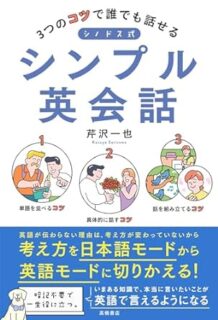2024.09.03
「おすすめ」は?と聞かれたら ナチュラルに伝える提案術
英会話の上達のためには、文法や語彙、そしてフレーズが、実際にどう使われるのかを学ぶことがとても大切です。さて、英会話をしていると、「おすすめ」を聞かれることがあります。そんなとき、どう答えればいいのでしょうか? 今回の記事では、具体的な場面を設定して、人に何かをすすめるときにどう言えばいいのか、カナダのペクさんに質問しました。この記事を読んで、実践的な英会話上達の極意を学びましょう!
Kaz 今回のテーマは、「人に何かをすすめるとき」。具体的な場面を設定して、ネイティブはどう言うのかを学びます。
たとえば、日本に来る友だちにおすすめの場所を聞かれたら、ペクさんならどう答える?
Pek ふつうは個人的なおすすめからはじめる。自分が行ったことがあって、本当に楽しかった場所だね。
たとえば、こう言うかな。
My favorite place is Kyoto. You can check out many shrines and temples, and even rent a kimono to walk around in. (わたしのお気に入りは京都だよ。たくさんの神社やお寺を巡れるし、着物をレンタルして歩き回ることもできるよ。)
Kaz なるほど。“My favorite place is Kyoto” と言って、おすすめできるんだね。これは応用がきくね。「おすすめの日本料理って何?」と聞かれて、“My favorite Japanese food is Soba(ぼくの好きな日本料理はそばだね)” と答える感じだね。
あと、“My favorite place is Kyoto” と言ったあとに、ペクさんはその理由を述べているけど、ここも大事なポイントだね。日本人は理由を言わない傾向があるから、読者のみなさんもこうやって理由もきちんと言うようにしてください。
そのあとはどう続く感じ?
Pek こんな感じかな。
Dropping by Tokyo is a must. There are so many cute neighborhoods like Akihabara and Harajuku. If you are into hot springs, Hakone is not far from Tokyo. You can also stay a night or two there. (東京にもぜひ寄ってほしいな。秋葉原や原宿みたいな可愛い街がたくさんあるよ。もし温泉が好きなら、東京からそんなに遠くないところに箱根がある。一、二泊するのもいいかも。)
Kaz “X is a must” という表現は、ぜひ何かをしてほしい、とおすすめするときによく使うね。
Pek そうそう。それから、もちろん自分が行ったことがない場所もすすめられるよ。
たとえば、
I heard Kamikouchi is a really cool place. You can hike around the mountains and even camp there. My friend recommended it to me and I’ve been thinking about checking it out myself too.(上高地ってすごくいい場所らしいよ。山でハイキングしたり、キャンプしたりもできるんだ。友だちがすすめてくれて、わたしも行ってみようかなって思ってるんだ。)
Kaz なるほど、“I heard Kamikouchi is a really cool place” と言うのもありなのか。たしかに日本語でも、おすすめの映画とかレストランとか聞かれて、「Xがいいらしいよ」と言うけど、それと一緒だね。
ところで、上の例文はあまり親しくない相手にも使えるの? たとえば、取引先の偉い人に対してとか。
Pek これまでのトーンはフレンドリーなので、相手と親しくない場合は、次のように言うといいよ。
I would definitely recommend checking out Kyoto. There are many shrines and temples you can visit. If you’d like, you can also rent a kimono to walk around in.(ぜひ京都を訪れることをおすすめします。多くの神社やお寺を巡ることができますし、もしよければ、着物をレンタルして散策することもできます。)
I would also drop by Tokyo. There are many nice neighborhoods like Shinjuku and Shibuya. If you like hot springs, Hakone is not far from Tokyo. You can stay a night or two there.(東京にもぜひ。新宿や渋谷などの素敵な街があります。温泉がお好きなら、箱根は東京から遠くなく、一泊、二泊するのによい場所ですよ。)
I’ve also heard that Kamikouchi is a great place to visit. There’s mountains where you can hike and camp. A friend recommended it to me and I’ve been thinking of going there as well.(また、上高地もとてもいいと聞いています。山でハイキングやキャンプができます。友人からすすめられたのですが、わたし自身も行ってみたいと思っています。)
Kaz フレンドリーな言い方と丁寧な言い方を比べると、フレンドリーな方では “cute” や “cool” みたいなカジュアルな会話でよく聞く単語が使われているね。それに対して、丁寧な方では “nice” や “great” といったより無難な単語が使われているね。
表現の大きな違いは、“I would definitely recommend” が使われていることと、あと“Dropping by Tokyo is a must.” が、“I would also drop by Tokyo.” となっていることだね。ポイントは “would” だと思うんだけど、これについて少し説明してくれるかな。
Pek “would” は丁寧な会話でよく使うんだ。“would” は仮定をあらわす助動詞なんだけど、たとえば “I would” なら、「もしわたしなら、こうします」とか「これを選ぶでしょう」と言っていることになる。つまり、“I would go to Kyoto” だと、「もしわたしなら、京都に行くことを選びます」という意味になる。
Kaz “would” を使うと、控え目な提案になるんだね。「もし、わたしがあなたの立場だったら」と、遠回しの提案をしている感じになる。
Pek そうそう。“would” は相手に共感を示しつつ、押しつけがましくない提案をするための表現なんだ。聞き手は、話し手の選択肢や意見を参考にしながら、自分で決めることができる。このニュアンスがあるから、“would” は丁寧な表現になるんだよ。
Kaz それに対して、友だちが相手ならもっと直接的な表現が使えるんだね。
Pek そう。友だち同士なら、“Dropping by Tokyo is a must” みたいに、強い表現を使っても大丈夫。これは、“would” のように、相手の好みを決めつけないようにする表現とは対照的なんだ。
同じように、“My favorite is…” と自分の好みをはっきり言うのも、ビジネスの場よりは親しい友だちとの方が適しているね。
Kaz なるほど。“should” はどうなの? たとえば、“You should definitely go to Kyoto(京都には絶対に行くべきだよ)” みたいな言い方。これは友だちに使う直接的な表現だと思うけど、何かをすすめるとき、上司や取引先の偉い人には “should” は避けたほうがいいの?
Pek “should” を使うのは同僚や部下に対しては問題ないけど、上司や目上の人には使わない方がいいね。上司に対して何をすべきか、すべきではないかを言うのはよくないからね。そういう場合は “would” を使った方がいいよ。
Kaz “You should definitely go to Kyoto(京都には絶対に行くべきだよ)” じゃなくて、“I would recommend visiting Kyoto(京都に行くことをおすすめします)” の方が丁寧だということだね。
じゃあ、もうひとつ、別のシチュエーションで例文を作成してみよう。友だちに「週末見るのにいい映画ないかな?」と聞かれたら、どうやっておすすめの映画を答える?
Pek My sister and her family went to see “Deadpool & Wolverine” the other day. They liked it. Have you seen it?(この前、妹が家族と『デッドプール&ウルヴァリン』を観に行ったんだけど、気に入ったみたいだよ。もう観た?)
Kaz なるほど、そうやっておすすめすることもできるのか。たとえば、おすすめのレストランを聞かれて、「このあいだ友だちが恵比寿のイタリアンに行って、すごく美味しかったって言ってたよ(The other day, a friend went to an Italian restaurant in Ebisu and said the food was really good)」みたいな感じだね。
I see, so that’s another way to recommend something. For example, if someone asks for a restaurant recommendation, you could say something like, “The other day, a friend went to an Italian restaurant in Ebisu and said the food was really good”.
Pek そうそう。それと、わたしはどちらかというと、映画館よりNetflixで観ることが多いんだ。
たとえば、以下のようにNetflixの番組をすすめられるよ。
How about “One Piece” or “Avatar: The Last Airbender”? The live actions are quite good.(『ワンピース』とか『アバター: 伝説の少年アン』なんてどう? 実写版が結構いい感じだよ。)
Kaz 人に何かをすすめるとき、“How about ~?(~はどうですか?)” もよく使われるね。これってどんなニュアンスなの?
Pek “How about” はニュートラルな表現だよ。提案しつつ、相手の意見を求めている感じだね。
Kaz カジュアルに話すべきか、それとも丁寧に話すべきか、深く考えることなく、どんな場面でも使える便利な表現だね。
英語のフレーズ本を手に取ると、人に何かをすすめるための表現がたくさん出てくるけど、やみくもにいろいろなフレーズを暗記しても、混乱するだけだし、使いこなせないよね。
まずは今回ペクさんに教わった例文を真似して、自分の例文をつくって、それを話せるようになるほうが近道だと思います!
もっとも効率的で効果が高い英会話学習法!
「シノドス式シンプルイングリッシュ」をはじめませんか?
たんに単語や文法、フレーズを記憶するだけでは、英語は話せるようになりません。
「簡単な英語なのに、その場でとっさに出てこない!」
「意見はあるのに、英語でうまく伝えられない!」
多くの学習者が抱えるこうした悩みの原因は、日本語で発想してしまうことにあります。
日本語で考えているかぎり、いつまでたっても英会話は上達しません。
では、どうすればいいのか?
カギとなるのは「語順」です。
英語の語順感覚を身につければ、自然に英語で発想できるようになります。
しかし、そのためには特別なトレーニングが必要です。
「シノドス式シンプルイングリッシュ」は、このために独自に開発された英語学習法です。
もしあなたが英会話でお悩みなら、この学習法を強くオススメします!



